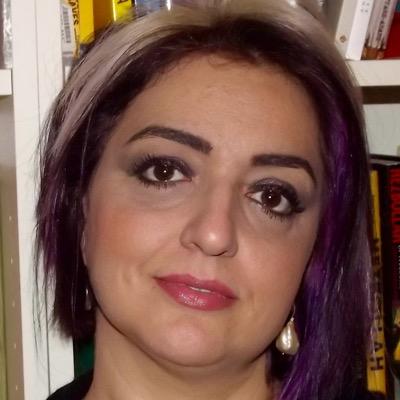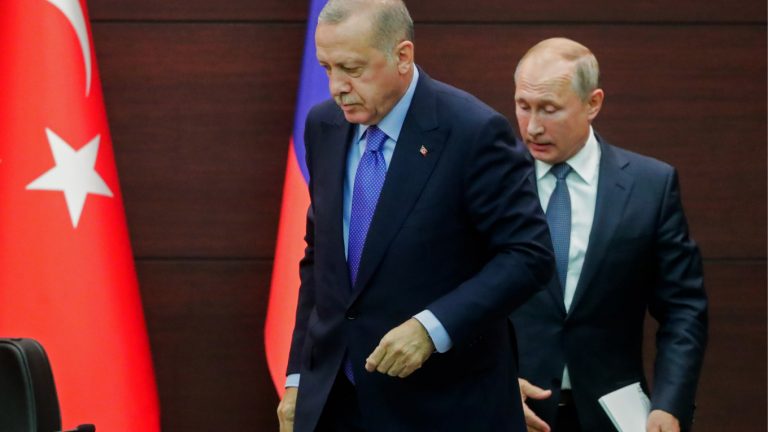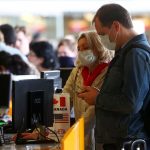In Europe we had almost forgotten about the Syrian conflict, if it were not for the new wave of refugees from Turkey. The refugee emergency is looked at as an “Erdogan” blackmail, thus avoiding the root of the problem. The refugees are Syrians and flee from Syria, from Russian bombs, from Assad’s forces and from the conflict that continues in Syria in the Idlib territories. The latest campaign launched by the regime and its allies has pushed a million displaced people to the Turkish borders. The campaign has specific purposes. Assad wants to empty the area from the Sunni population who live there. Idlib is the area where “irreducible” fighters and opponents, who do not want to surrender to the regime, have joined. And Idlib has a story. It had already risen in the 70s and 80s against Assad Father and it has maintained the same spirit after 2011. This is why the area must be emptied. To Assad serves the territory, not the population of Idlib.
In September 2018 Erdogan (once the busiest supporter of the Syrian opposition) and Putin met in Sochi and reached an agreement to create a safe zone in Idlib. In practice, the agreement suspended military operations and functioned as a possible prelude to the partition of the region. Russia and Syria would have taken the M5 highway, which is strategic because it connects the capital Damascus to the second city of the country which is Aleppo, but would have spared the part of the region between the highway and the Turkish border – and there is a massive amount of civilians. The deal gave Turkey, rebels, and opposition forces the opportunity to maintain control over most of Idlib province. The Turkish military and their partners allegedly controlled ceasefire compliance. For Turkey, the area is important both as a territory where to return the refugees who are now in Turkey (there are 3.6 million Syrian refugees in Turkey), and because it fears that the loss of Idlib could now simply mean the end of its presence in Syria, very important for the control of the Kurds related to PKK (YPG).
But Assad broke the Sochi deal. In the last month the regime began to advance to recover everything, Russian planes bombed hospitals, houses, schools and refugee camps. The offensive was interrupted by the counterattacks of Turkish troops who are fighting alongside the militiamen. The situation became explosive on February 27, when thirty-three Turkish soldiers were killed in Idlib. Most likely a miscalculation on the Russian side. Hence a new agreement between Putin and Erdogan on March 5 of this year in Moscow.
The agreement reached after six hours of negotiations provides for a ceasefire. To verify the compliance, a security corridor of about 6 km north and 6 km south of the M4 highway will be established under the control of the Damascus government. Joint Russian-Turkish patrols will be held on this road from March 15. This is a scheme already tested with the Russian-Turkish joint patrols in the border areas between Turkey and Syria further east, in the Kurdish areas.
Surely this is a weak deal for Erdogan. But he had to accept it for the simple reason that he cannot afford to fight for long against the Russian air force. Unless it has American support. So the Turkish president had to accept that Assad’s troops remain firmly in control of the M5 highway and do not withdraw from the territories freed in the last few weeks. The militiamen on the contrary would have to retreat a few tens of kilometers from the area they still control south of the M4 highway up to 6 kilometers north of it. And such agreement signed in Moscow offers Syrian government troops and its allies the possibility for future offensives to surround the capital Idlib.
This deal will likely last longer than Sochi simply because neither party wants the ultimate break with the other. Erdogan cannot win the war against Russian forces and Putin wants to weaken NATO more and more. But Ankara is determined to defend its borders and keep under control the movements of the Kurdish related to PKK and Russia in defending the Assad regime and its bases in Syria. Even so we are therefore still far from a political solution. More generally, perhaps, there is no long-term perspective for the entire Syrian territory.
Author
-

Researcher on International Relations Middle East and Balkans
View all posts
CSSII- Centro Interdipartimentale di Studi Strategici, Internazionali e Imprenditoriali,
Università di Firenze, Italy, Albania




